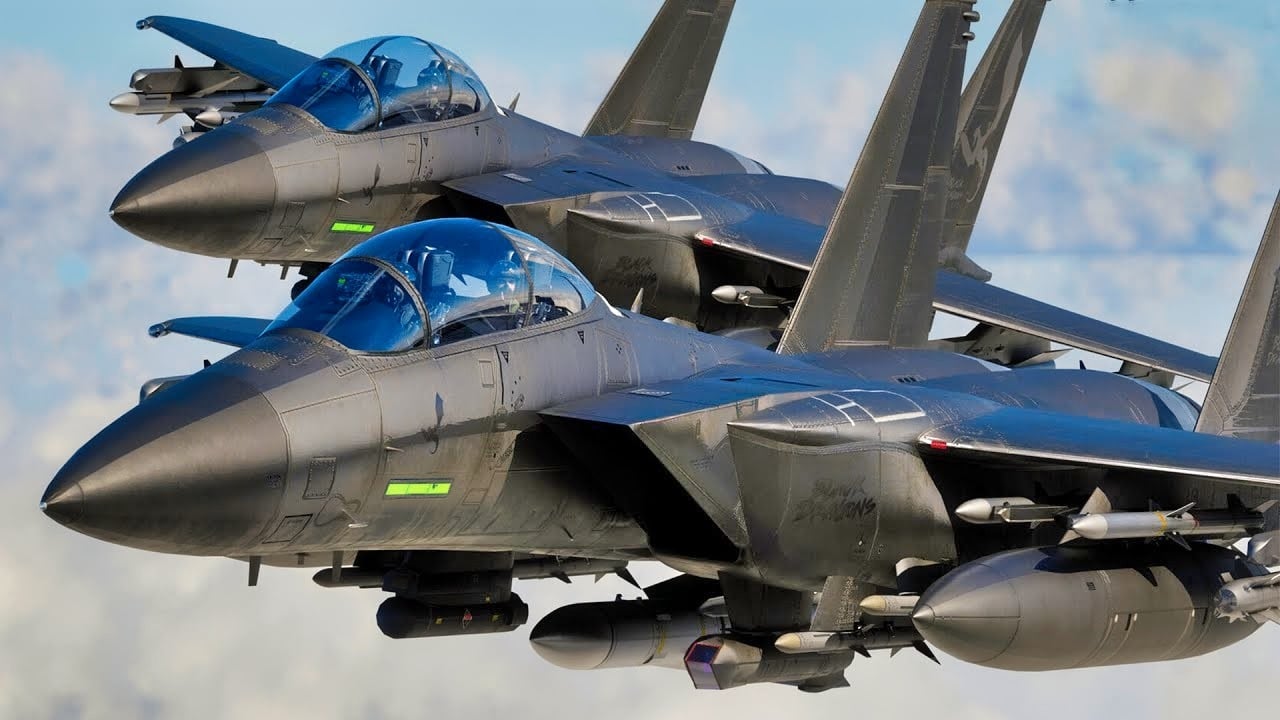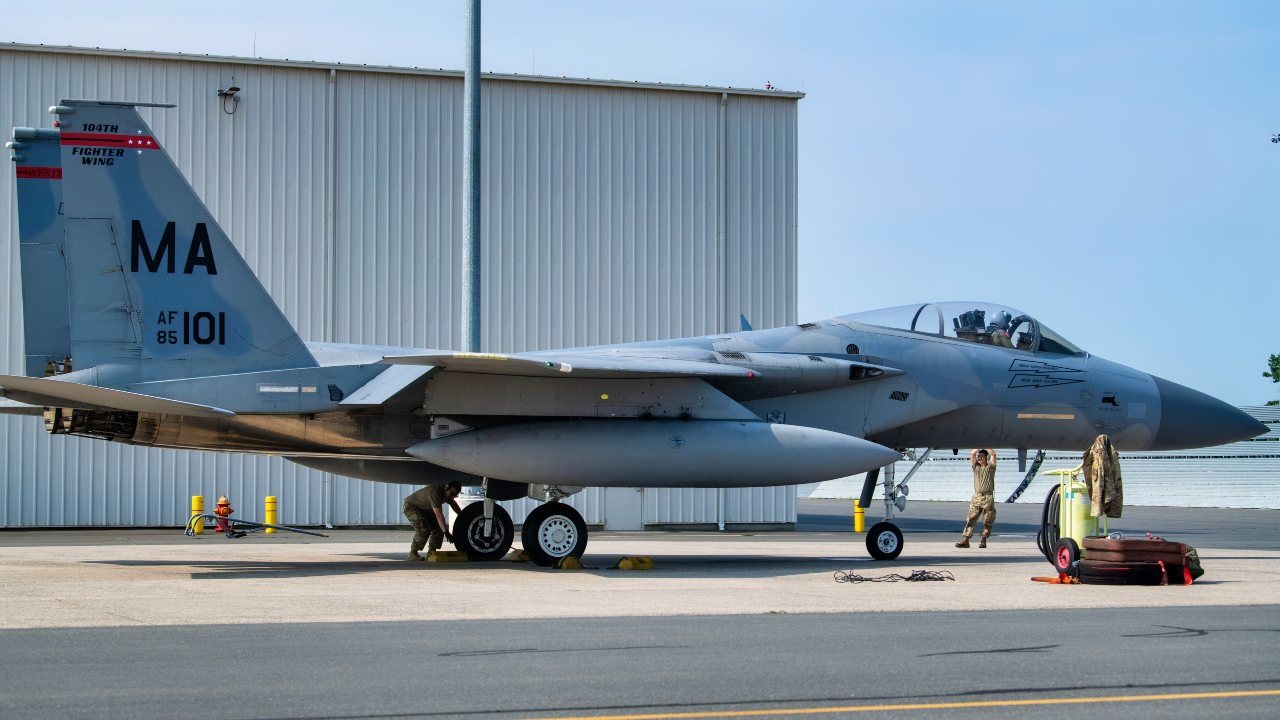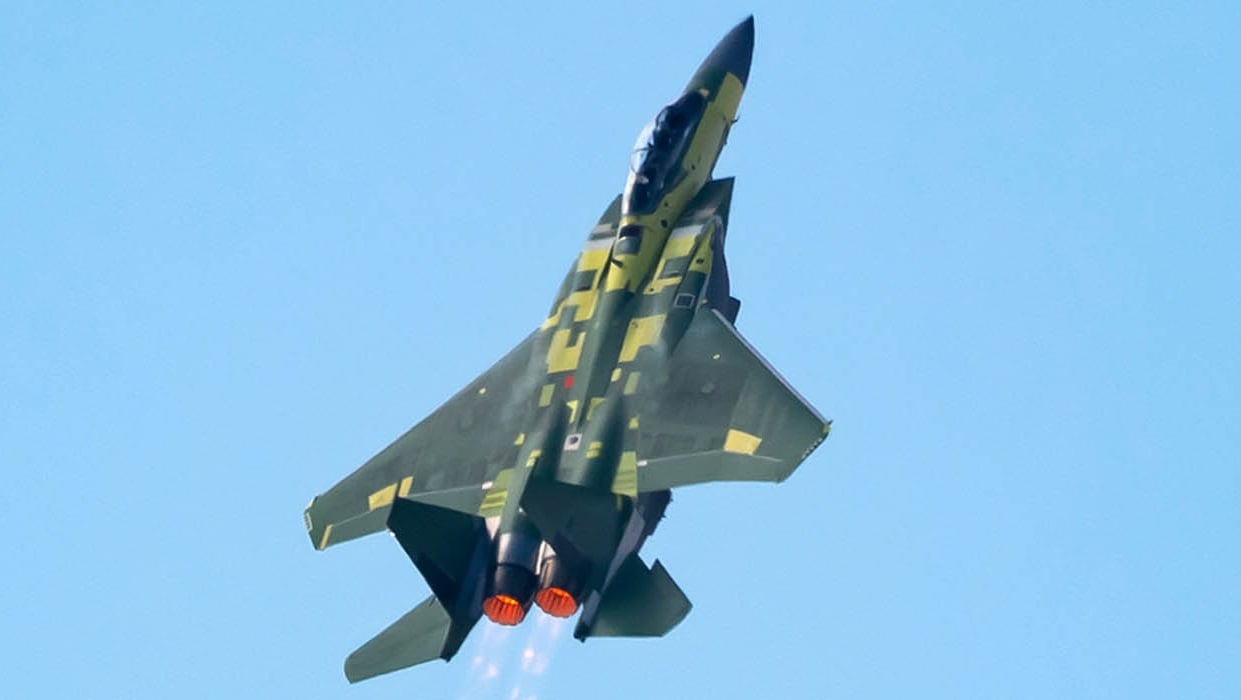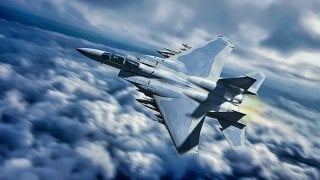The U.S. Air Force's F-15 Fighter Dilemma
The U.S. Air Force is phasing out its aging F-15C Eagles, with four jets recently returning from Kadena Air Base in Japan as part of a larger modernization effort. These aircraft may be sent to the Boneyard for long-term storage, with their future uncertain.
Summary and Key Points: The U.S. Air Force is phasing out its aging F-15C Eagles, with four jets recently returning from Kadena Air Base in Japan as part of a larger modernization effort. These aircraft may be sent to the Boneyard for long-term storage, with their future uncertain.

-The F-15C Eagles are being replaced by the modern F-15EX Eagle II, which will continue the legacy of air superiority at Kadena.
-While the F-15C's departure marks the end of an era, the new F-15EX will maintain the F-15 heritage and strengthen U.S. air capabilities in the Pacific region.
U.S. Air Force F-15 Eagles Are Coming Home – But Not to Roost
Four United States Air Force F-15C Eagles have come home, but not too roost, and the future of the aircraft remains in question. The aging warbirds could have their wings clipped and be sent to the 309th Aerospace Maintenance and Regeneration Group's "Boneyard" for long-term storage, and in all likelihood may never fly again. There is also the possibility the F-15Cs could be sent to another unit – including to the Air National Guard (ANG).
The "four-ship of F-15C Eagles departed Kadena Air Base (Japan) as part of a large-scale divestment plan to modernize the base's capabilities, Aug. 24, 2024," the U.S. Indo-Pacific Command (USINDOPACOM) announced. "The four-ship's departure marks just one milestone on the road to replacing the F-15C Eagles and ushering in a new era of air superiority with the F-15EX Eagle IIs."
An upgraded version of the original F-15A Eagle, single-seat all-weather air-superiority fighter, the F-15C was first introduced in 1979 with a total of 483 being produced through the end of 1985. As of April 2019, the air service had 249 F-15s in service, including the F-15C models.

New Hatchlings Headed to Kadena
As the F-15Cs depart from Kadena, the aircraft will be replaced by the modernized F-15EX Eagle II, but the legacy of the original Eagle will live on at the U.S. base – known as the Keystone of the Pacific.
"It's a legacy fourth generation fighter that's at one of the most critical bases," said 1st Lt. Claire Carey, 131st Fighter Squadron assistant chief of scheduling and one of the four U.S. Air Force pilots who flew the F-15Cs back to the United States. "It's an honor to serve at one of the most important bases in the Pacific, flying one of the most iconic aircraft in the Air Force."
The F-15 Eagle was first declared "combat capable" in September 1975, and in the nearly five decades in service, it has been employed in numerous operations around the world with more than 100 aerial victories and zero combat losses.
That fact isn't lost on the ground crews and maintainers, where it will be business as usual as the new and enhanced F-15EXs arrive.
"The deployed units here are very important," explained U.S. Air Force SSgt. Evan Schneider, dedicated F-15C crew chief. "These deployed units are filling the gaps [between the F-15C and F-15EX]. While we're focusing on the divestment, the deployed units are maintaining security in the AOR."
The U.S. Air Force has scaled back on its acquisition of the F-15EX, but it is still seen as the right aircraft to be deployed at Kadena.
"The F-15EX will be a new platform with new capabilities. It will give us an incredible edge," said Maj. Peter Gawor, director of operations, 67th Fighter Squadron. "But it will still maintain the F-15 heritage while simultaneously projecting air superiority in the Pacific region."

USINDOPACOM has not announced when the remaining F-15C Eagles at Kadena will make their return flights to the United States, but it will likely occur as other aircraft are rotated to the base. That will include the F-15EX as well as other fighters in the air service's inventory. Earlier this year, F-22s from the 199th and 19th Fighter Squadrons were deployed to the Keystone of the Pacific and could see further rotations.
Author Experience and Expertise: Peter Suciu
Peter Suciu is a Michigan-based writer. He has contributed to more than four dozen magazines, newspapers, and websites with over 3,200 published pieces over a twenty-year career in journalism. He regularly writes about military hardware, firearms history, cybersecurity, politics, and international affairs. Peter is also a Contributing Writer for Forbes and Clearance Jobs. You can follow him on Twitter: @PeterSuciu. You can email the author: [email protected].
Image Credit: Creative Commons and Shutterstock.


